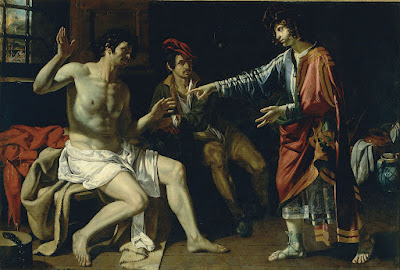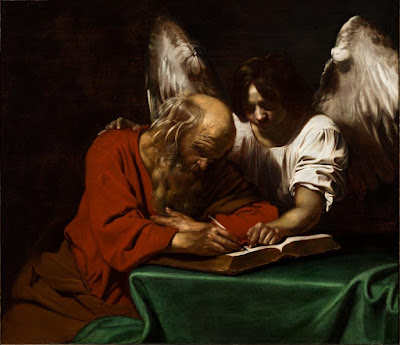-after-Francesco-Primaticcio-Bath-of-Venus-and-Mars-c1543-etching-Bibliotheca-Herziana-Rome.jpg) |
| Antonio Fantuzzi after Francesco Primaticcio Bath of Venus and Mars ca. 1543 etching Bibliotheca Hertziana, Rome |
-after-Francesco-Primaticcio-Artemis-Athena-and-Aphrodite-leaving-Olympus-c1543-etching-(trimmed)-British-Museum.png) |
| Antonio Fantuzzi after Francesco Primaticcio Artemis, Athena and Aphrodite leaving Olympus ca. 1543 etching British Museum |
-after-Francesco-Primaticcio-Omphale-dressing-Hercules-as-a-Woman-c1542-43-etching-British-Museum.png) |
| Antonio Fantuzzi after Francesco Primaticcio Omphale dressing Hercules as a Woman ca. 1542-43 etching British Museum |
-after-Francesco-Primaticcio-Sibyl-c1544-45-etching-British-Museum.png) |
| Antonio Fantuzzi after Francesco Primaticcio Sibyl ca. 1544-45 etching British Museum |
-after-Francesco-Primaticcio-Muse-c1544-etching-British-Museum.png) |
| Antonio Fantuzzi after Francesco Primaticcio Antique Statue of a Muse ca. 1544 etching British Museum |
-after-Giulio-Romano-Figures-after-a-Roman-Frieze-c1542-43-etching-British-Museum.png) |
| Antonio Fantuzzi after Giulio Romano Figures after a Roman Frieze ca. 1542-43 etching British Museum |
-Genius-bestowing-Laurel-Wreath-on-Roma-1544-engraving-Herzog-August-Bibliothek-Wolfenb%C3%BCttel.jpg) |
| Antonio Fantuzzi Genius bestowing Laurel Wreath on the Goddess Roma 1544 engraving Herzog August Bibliothek, Wolfenbüttel |
-after-Rosso-Fiorentino-Design-for-Covered-Cup-supported-by-Satyrs-1543-etching-(trimmed)-British-Museum.png) |
| Antonio Fantuzzi after Rosso Fiorentino Design for Covered Cup supported by Satyrs 1543 etching British Museum |
-after-Rosso-Fiorentino-Royal-Elephant-with-Emblems-of-Fran%C3%A7ois-I-and-surrounded-by-Classical-Deities-c1542-43-etching-British-Museum.png) |
| Antonio Fantuzzi after Rosso Fiorentino Royal Elephant with Emblems of François I of France ca. 1542-43 etching British Museum |
-after-Rosso-Fiorentino-Frame-of-Dana%C3%AB-(terms-flanking-cartouche-with-landscape)-c1542-43-etching-British-Museum.png) |
| Antonio Fantuzzi after Rosso Fiorentino Terms flanking Cartouche with Landscape ca. 1542-43 etching British Museum |
-after-Rosso-Fiorentino-Vertumnus-and-Pmona-c1542-43-etching-British-Museum.png) |
| Antonio Fantuzzi after Rosso Fiorentino Vertumnus and Pomona ca. 1542-43 etching British Museum |
-after-Rosso-Fiorentino-Classical-Scene-with-Funeral-Pyre-c1542-43-etching-British-Museum.png) |
| Antonio Fantuzzi after Rosso Fiorentino Classical Scene with Funeral Pyre ca. 1542-43 etching British Museum |
-after-Rosso-Fiorentino-Classical-Scene-with-Roman-Ruler-(Unity-of-the-State)-c1543-etching-British-Museum.png) |
| Antonio Fantuzzi after Rosso Fiorentino Classical Scene with Roman Ruler (Allegory of State Unity) ca. 1543 etching British Museum |
-after-Parmigianino-Seated-Figure-in-Landscape-c1545-chiaroscuro-woodcut-Cabinet-d'Arts-Graphiques-Mus%C3%A9es-d'Art-et-d'Histoire-Gen%C3%A8ve.jpg) |
| Antonio Fantuzzi after Parmigianino Seated Figure in Landscape ca. 1545 chiaroscuro woodcut Cabinet d'Arts Graphiques, Musées d'Art et d'Histoire, Genève |
-after-Parmigianino-Martyrdom-of-St-Peter-and-St-Paul-c1545-chiaroscuro-woodcut-Universit%C3%A4tsbibliothek-Hamburg.jpg) |
| Antonio Fantuzzi after Parmigianino Martyrdom of St Peter and St Paul ca. 1545 chiaroscuro woodcut Universitätsbibliothek, Hamburg |
-Ornamental-Panel-with-Mythological-Figures-c1543-etching-British-Museum.png) |
| Antonio Fantuzzi Ornamental Panel with Mythological Figures ca. 1543 etching British Museum |
from Matinées
Dear Mrs. Livingston,
I want to say that I am still in a daze
From yesterday afternoon.
I will treasure the experience always –
My very first Grand Opera! It was very
Thoughtful of you to invite
Me and am so sorry
That I was late, and for my coughing fit.
I play my record of the Overture
Over and over. I pretend
I am still sitting in the theater.
I am still sitting in the theater.
I also wrote a poem which my Mother
Says I should copy out and send.
Ever gratefully, Your little friend.


-c1580-oil-on-canvas-Galleria-Borghese-Rome.jpg)
-c1590-oil-on-canvas-John-and-Mable-Ringling-Museum-of-Art-Sarasota.jpg)


-17th-century-oil-on-canvas-Mus%C3%A9e-des-Beaux-Arts-de-Bordeaux.jpg)

-Palazzo-Pretorio-Prato.jpg)
-1611-oil-on-canvas-Kunstmuseum-Basel.jpg)
-1614-oil-on-canvas-Kunsthaus-Z%C3%BCrich.jpg)













-Hamburger-Kunsthalle.jpg)
-Fondation-Custodia-Paris.jpg)



-c1550-drawing-National-Gallery-of-Victoria-Melbourne.jpg)

-Hamburger-Kunsthalle.jpg)







-St-Matthew-c1535-37-oil-on-panel-Museum-of-Fine-Arts-Budapest.jpg)







